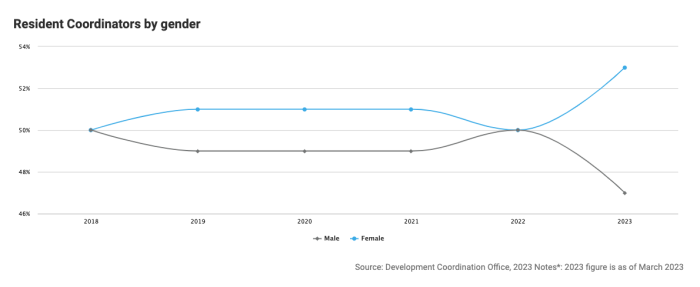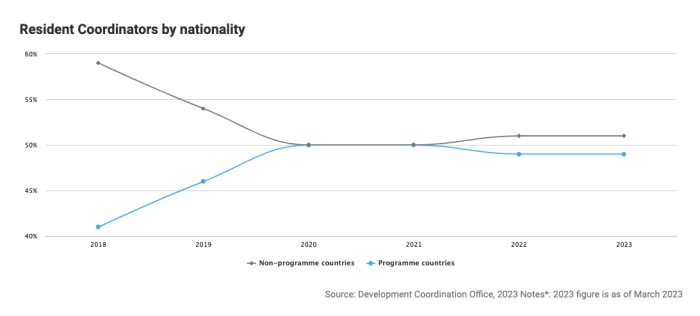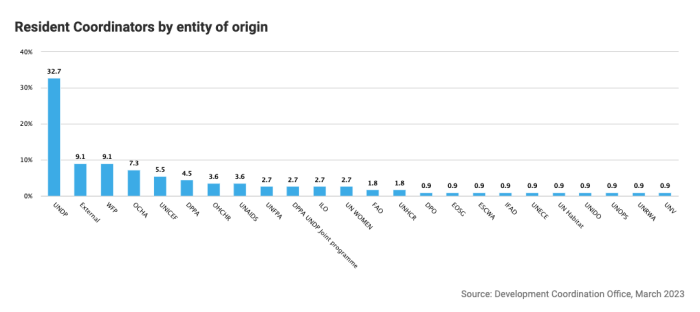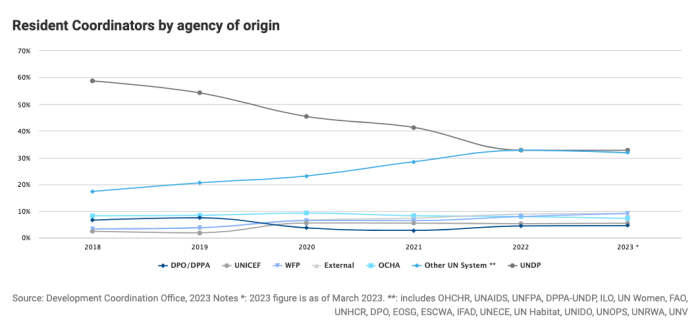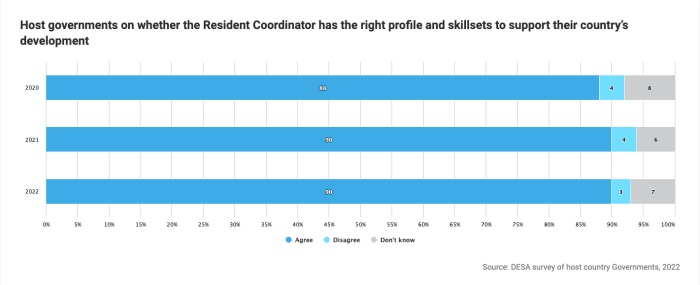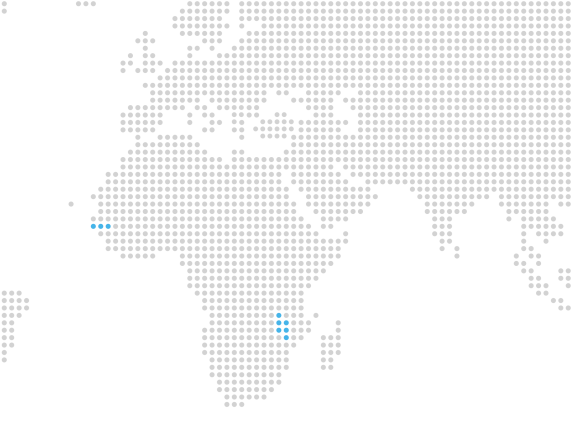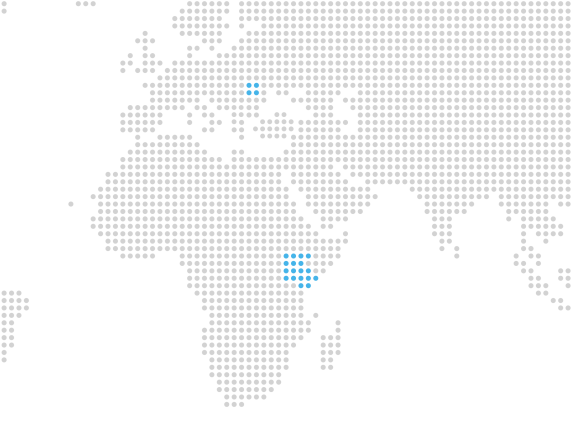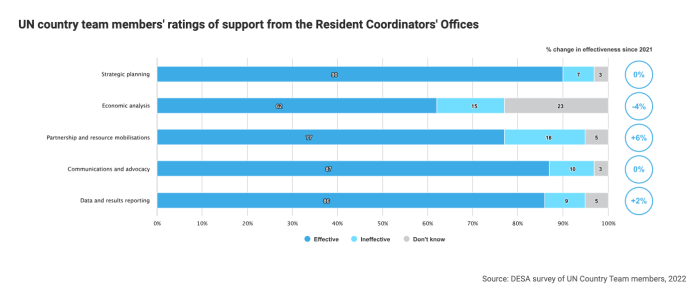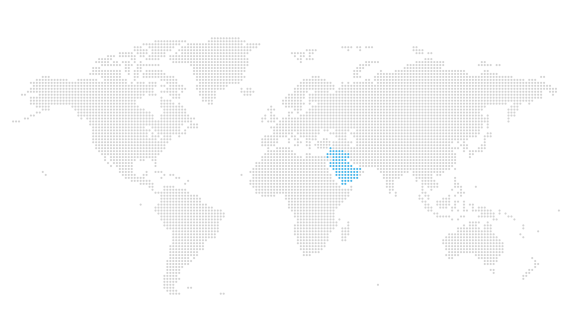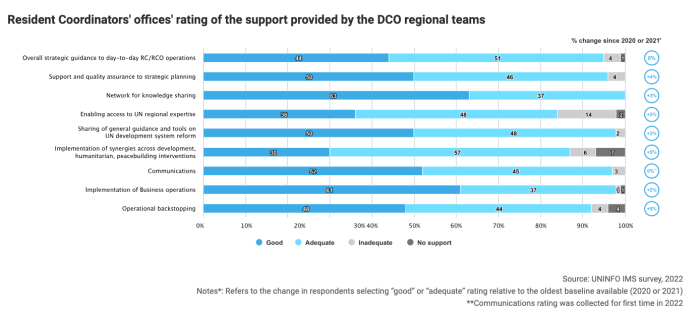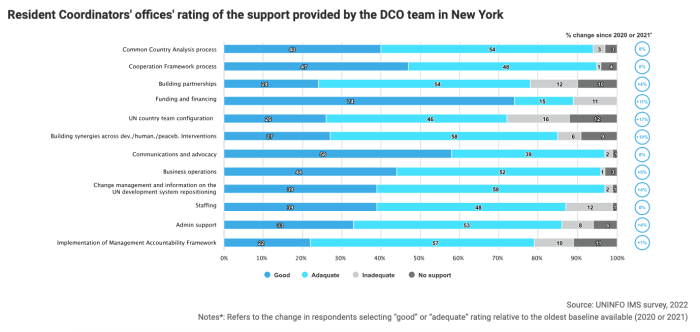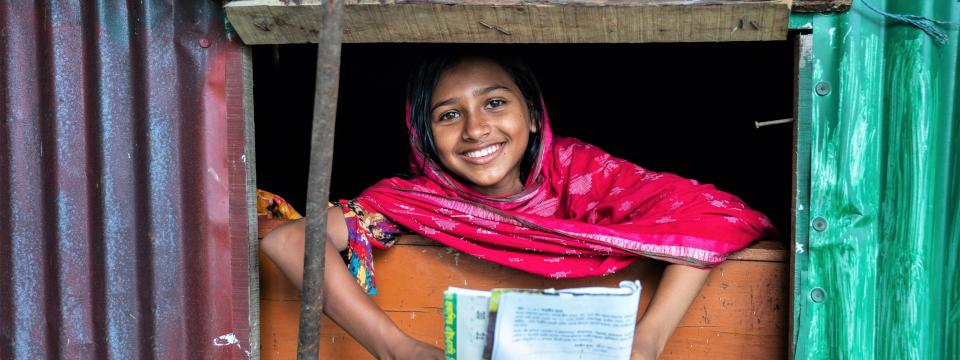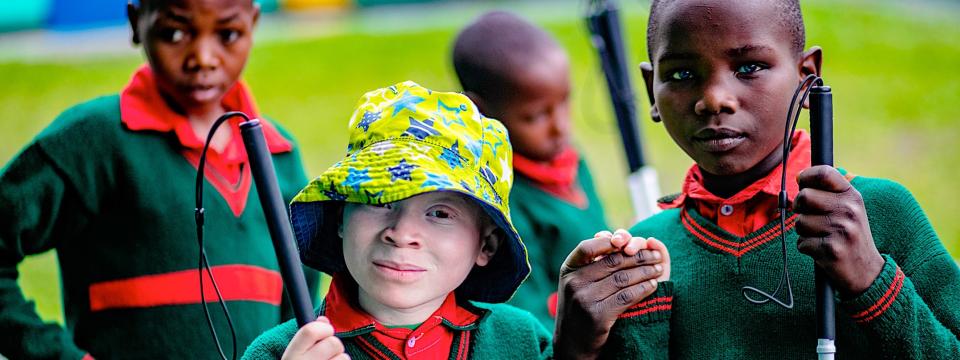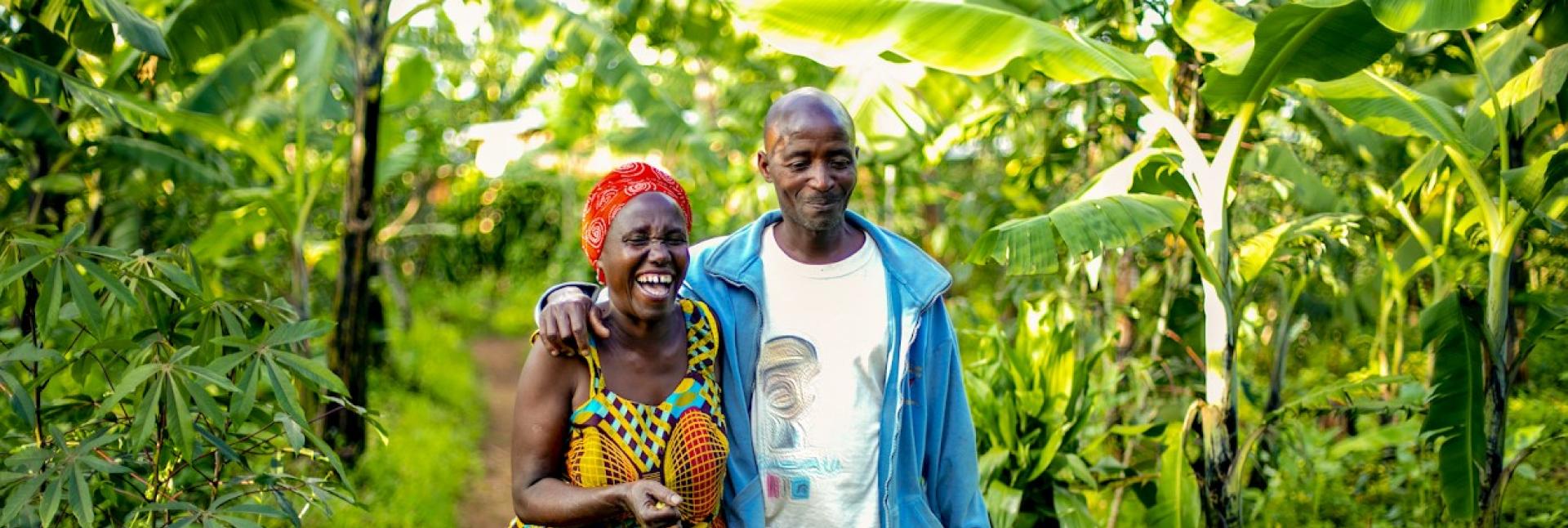
Leadership
Strengthened leadership at country, regional and global levels
Coordination at country level for strengthened RC leadership in support of national needs and priorities
Resident Coordinators stepped up to lead UN teams to respond more effectively to the diverse needs and priorities of countries. They leveraged their neutral position to build trust, forge coalitions, and deliver tailored SDG policy and financing solutions – ranging from:
- convening multi-stakeholder policy platforms around SDG priorities for Least Developed Countries (LDCs), as in Lesotho
- connecting Governments, donors and partners in Landlocked Developing Countries (LLDCs), as in Azerbaijan
- facilitating access to concessional financing at scale for Middle Income Countries (MICs), as in Indonesia and Kenya
- and leading studies from Samoa to support Small Island Developing States (SIDS)’ positions around Loss and Damage at COP27
Strengthened Resident Coordinator leadership is the result of the significant investments made to revamp the RC selection system
- Historic barriers to external candidates’ applications – which marked the system pre-reforms - have been removed
- Agency endorsement and internal voting on RCs have been replaced by a more transparent, professional and rigorous external assessment of candidates
- The Resident Coordinator talent pipeline now identifies the best talent from inside and outside the UN
- Close collaboration with the Office for the Coordination of Humanitarian Affairs (OCHA) and the Departments of Political and Peacebuilding Affairs/Peace Operations (DPPA/DPO) now helps ensure seamless deployment in countries where RCs also serve as humanitarian coordinators and also as Deputy Special Representatives of the Secretary-General in specific country contexts
- RC posts are advertised a year in advance and recruitment is fast-tracked to minimize RC leadership gaps in countries
RC candidates
In 2022, 53 new candidates were included in the RC talent pipeline, bringing the total number of candidates to 182
candidates passed
64 candidates successfully passed the RC assessment and can now apply for RC posts
RC posts reclassified
7 RC positions were reclassified from D-1 to D-2 level in response to specific country needs due to changes in country situations
Strengthened RC leadership is also the result of a robust support package and a strengthened performance appraisal to ensure the necessary capacities and skillsets required by RCs
- Analysis of individual country preferences and talent scouting ensure that RC profiles better match specific country needs.
- Members of the RC talent pipeline benefit from training, career coaching, and exposure to sitting RCs, as they prepare to take up leadership positions
- Sitting RCs benefit from briefings, mentoring, virtual sessions and in-person workshops as well as continuous opportunities for peer exchange and leadership feedback, including at their annual meeting with the Secretary-General
- The performance appraisal process for RCs is more robust, including inputs from various stakeholders and ultimate appraisal by the Secretary-General
As a result, the RC cadre is increasingly diverse, better reflecting the needs of host governments:
By the end of March 2023, 55% of serving RCs were appointed following the reforms
The number of RCs from outside the UN increased from 4 in 2019 (3%) to 10 (9%) today, now constituting the second-largest group of RCs
UN entities in the RC track increased from 17 in 2019 to 23 today, including for the first time from DCO, EOSG, IFAD, RECs, UNDRR and UNIDO
Host governments remain overwhelmingly satisfied with the RC profile and leadership
Profile and skillsets
90% agree that Resident Coordinators have the needed profile and skillsets
National priorities
85% confirm that, under Resident Coordinator leadership, better-aligned UN activities are responding to national priorities
Resident Coordinators can count on strengthened capacities in their offices in support of UN country teams
- Prior to 2019, over half of the RC offices had only 1 or 0 substantive coordination staff
- Post-reform, every RC office has 5 core capacities for strategic planning, economic analysis, partnerships, data and results reporting, and communications
Coordination at regional level to support the Resident Coordinator and UN country teams
DCO regional teams provide dedicated and efficient day-to-day management support for RCs and their offices.
- DCO regional teams are first responders to wide-ranging demands from RCs and UN country teams for strategic guidance tailored to the specific needs of each region – from joint planning, strategic advice for cross-sectoral SDG policy, partnership and financing solutions, and transboundary responses.
- DCO regional teams facilitate connections to expertise from relevant UN regional entities as part of the joint secretariat of the Regional Collaborative Platforms (RCPs).
- DCO regional teams help mobilize RCs and regional policy expertise to translate global priorities in country level action, for example facilitating discussions between RCs and RCPs as part of COP27 for climate action.
- DCO Regional Directors guide every stage of Cooperation Framework design and assessment by chairing the regional Peer Support Groups, infusing experience from different countries, reflecting regional priorities, connecting to the broad range of UN expertise at regional and global levels, and enhancing quality control and assurance.
Africa
Africa
In Africa, the DCO regional team, supported by a regional Peace and Development Advisor, facilitated a shared risk analysis of sub-regional dynamics affecting Benin, Togo, Ghana, Cote d’Ivoire and Burkina Faso, which enabled sound understanding of instability drivers through a sustainable development lens.
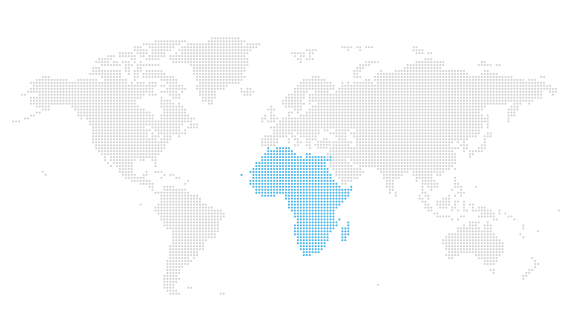
Europe and Central Asia
Europe and Central Asia
In Europe and Central Asia, the team worked with ILO, the International Organization of Employers (IOE) and other partners to bring together employer organizations and RCs to enhance public-private collaboration against impacts of the COVID-19 pandemic and for economic and social recovery.
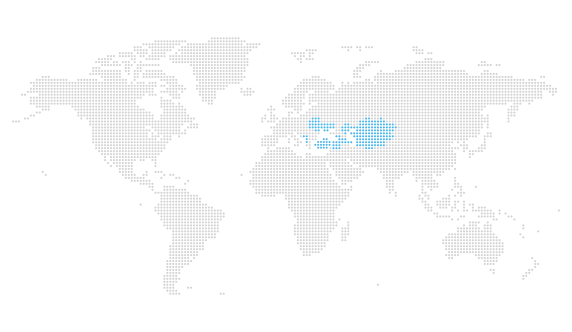
Asia Pacific
Asia Pacific
The DCO regional team for the Asia-Pacific region sourced technical expertise from regional UN Issue-Based Coalitions for Papua New Guinea, Maldives, Nepal, and the Philippines to tackle disaster-risk reduction, climate change adaptation, digital transformation, and mainstreaming norms and values such as disability inclusion.
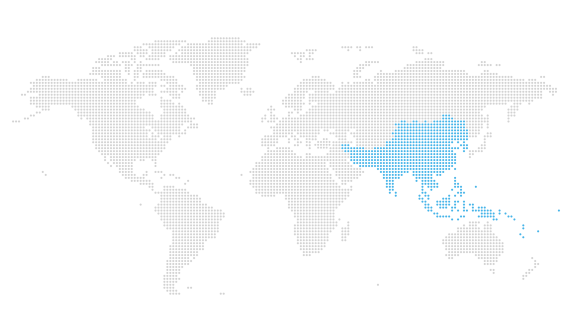
Latin America and the Caribbean
Latin America and the Caribbean
In Latin America and the Caribbean, DCO guided an RC-led process to support a collective vision among the governments of Argentina, Bolivia and Paraguay on food systems, conflict prevention and the needs of indigenous communities of the Gran Chaco Americano
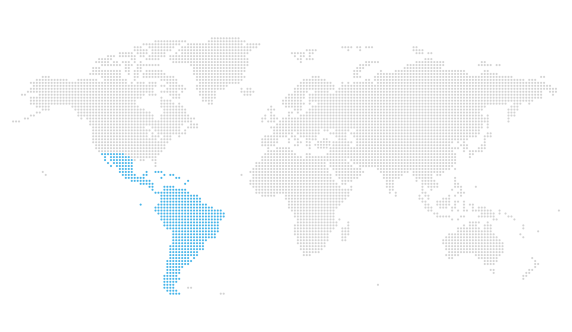
Resident Coordinators increasingly value the support received from regional teams of the Development Coordination Office
Resident Coordinators' offices' rating of the support provided by the DCO regional teams
Source: UNINFO IMS survey, 2022
Notes*: Refers to the change in respondents selecting “good” or “adequate” rating relative to the oldest baseline available (2020 or 2021)
**Communications rating was collected for first time in 2022
Coordination at global level in support of the UN development system
Under my direct oversight and the collective leadership of the UN Sustainable Development Group, the DCO team in NY continues to provide steady provision of strategic direction and management of RCs and their offices:
- DCO elaborated corporate direction on recruitment, management and oversight of RCs
- DCO enabled effective country-level support relating to joint analysis, SDG programming, partnerships, communications and results-reporting – ensuring a focus on innovation
- DCO contributed to increase transparency and accountability for results of the UN development system
- DCO facilitated quality funding, including by hosting the secretariat of the Joint SDG Fund
- DCO stepped-up engagement to advance system-wide efficiencies in support of the UNSDG Business Innovation Group
In providing RCs with essential support to enable a conducive environment to rescue the SDGs, DCO linked them with global expertise in critical areas for SDG acceleration and solutions – from climate action to energy transitions, quality education, gender equality, food systems transformation, and SDG financing, with a focus on the most vulnerable countries, particularly Small Island Development States (SIDS).
As a result, the RC system has become an indispensable resource to connect key global initiatives and strategies with concrete and effective action at the country-level, as in 2022 the Transforming Education Summit, COP27, the follow-up to the Food Systems Summit, and the Secretary-General’s Global Crisis Response Group and Global Accelerator on Jobs and Social Protection for Just Transitions.
Resident Coordinators value the support received by the Development Coordination Office
The report's resource page can be found here, and the glossary here.
To learn more, visit un-dco.org.














